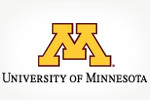Project Profile
IGERT: Non- Equilibrium Dynamics Across Space and Time: A common Approach for Engineers, Earth Scientists, Ecologists
University of Minnesota at Twin Cities
Abstract
This IGERT training grant will bring together scholars of ecology, civil engineering, and the earth sciences to study the interplay between landscape changes and ecosystem processes across a wide range of spatial and temporal scales and across interfaces with an emphasis on non-equilibrium dynamics. Changes in the abiotic and… more »
This IGERT training grant will bring together scholars of ecology, civil engineering, and the earth sciences to study the interplay between landscape changes and ecosystem processes across a wide range of spatial and temporal scales and across interfaces with an emphasis on non-equilibrium dynamics. Changes in the abiotic and biotic world have taken place over a wide range of temporal and spatial scales. In particular, human activities have greatly accelerated the rate at which the physical and biological world is perturbed through modifications in transport processes.
Opportunities for graduate education and research spanning these disciplines and issues will be provided at the University of Minnesota research facilities at Itasca State Park and the National Center for Earth-surface Dynamics (NCED). Key education and training features are a one-year comprehensive, team-taught course that emphasizes data collection using modern instrumentation, data analysis, data interpretation, and model building across spatial and temporal scales and across interfaces. Collaborative projects, virtual seminars with international partners, ethics training and professional preparation will enhance this experience. The core training in the basic sciences and engineering will also include historical, social, and economic topics.
This IGERT training program will recruit students from a broad spectrum and prepare them for an international and collaborative workforce. The broader impacts of this IGERT include partnerships with colleges and pre-graduate school internships to recruit from underrepresented groups. The partnership with NCED will provide opportunities for public outreach activities through collaborations with the Science Museum of Minnesota and the Minnesota Historical Society, such as development of teaching materials for K-12 based on historical records in Minnesota. IGERT is an NSF-wide program intended to meet the challenges of educating U.S. Ph.D. scientists and engineers with the interdisciplinary background, deep knowledge in a chosen discipline, and the technical, professional, and personal skills needed for the career demands of the future. The program is intended to catalyze a cultural change in graduate education by establishing innovative new models for graduate education and training in a fertile environment for collaborative research that transcends traditional disciplinary boundaries. « less
Contributions[?]
Project members' contributions to the library and showcase are listed here.
See All 52 Contributions »






